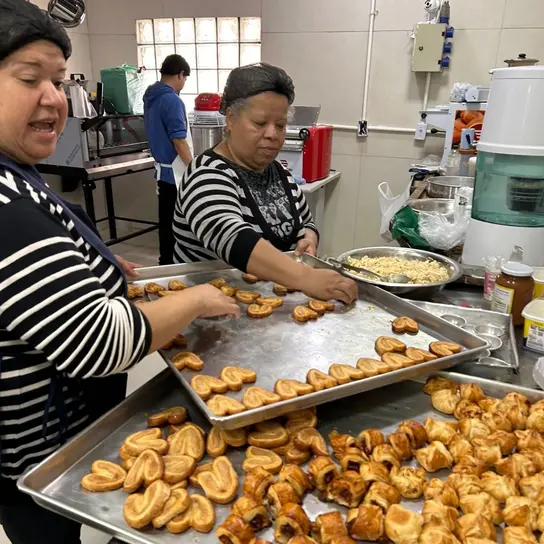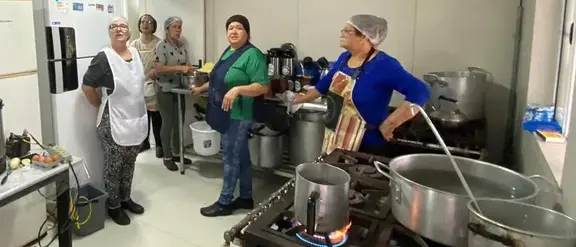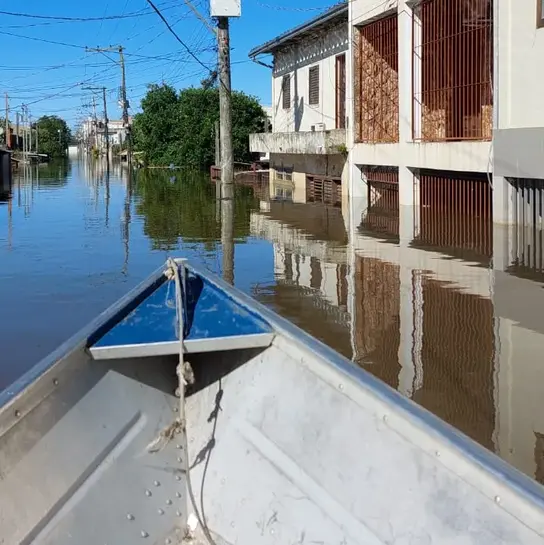Brazil: Emergency aid becomes sustainable economic initiatives
When southern Brazil was hit by devastating floods in May 2024, two women's groups provided rapid assistance. Terre des Hommes and the Volkswagen Employee Foundation supported them. Today, these emergency relief efforts have evolved into successful economic initiatives that secure work and income for women and their families.
It began with a catastrophe: In May 2024, southern Brazil was struck by repeated heavy rains and flooding. More than 140 people died, and over half a million were forced to leave their homes. Roads, bridges, and communication networks were destroyed, leaving hundreds of thousands of households without electricity and clean water. Schools were converted into emergency shelters, production chains were disrupted, and there were shortages of essential supplies.
Help in times of need
Two women's groups from Morró da Cruz and Viamão, impoverished outskirts of Porto Alegre, didn't hesitate and organized aid. Terre des Hommes and the Volkswagen Employee Foundation pledged their support: Almost 500 families were provided with fresh food for a year. That was twice as many as planned in the project.
But the future was also considered. Many women worked in the wealthier neighborhoods of Porto Alegre before the flood – for example, as domestic workers or cleaners. They had no social security, and when their jobs ended, they were left with nothing. These women desperately needed an economic future.

In Morró da Cruz, a bakery was established, selling its goods at fair prices. The community kitchen, already run by a women's group before the flood, was expanded to provide meals for flood victims who had fled to the neighborhood and for needy members of the community. To this end, the vegetable garden was also enlarged and equipped with rainwater storage. In Viamão, a sewing workshop was set up, transforming the surplus of clothing donated by the flood into blankets and other textiles.
From maid to her own boss
Today, a year and a half later, sustainable economic initiatives have emerged from the emergency relief effort: The community kitchen provides the neighborhood with affordable meals and now generates good income through catering at events. Both the baked goods and pastries, as well as the sewing products, are sold successfully – not only in Porto Alegre and Viamão, but also as far away as Recife in northeastern Brazil – some 3,000 km away.
At the end of the one-year project, over a hundred women had earned at least as much as before the flood – in most cases, significantly more. And: The work is more enjoyable. Before, they often had to toil under exploitative conditions, for example as domestic servants. Now, these women are their own bosses and founders of successful businesses.

